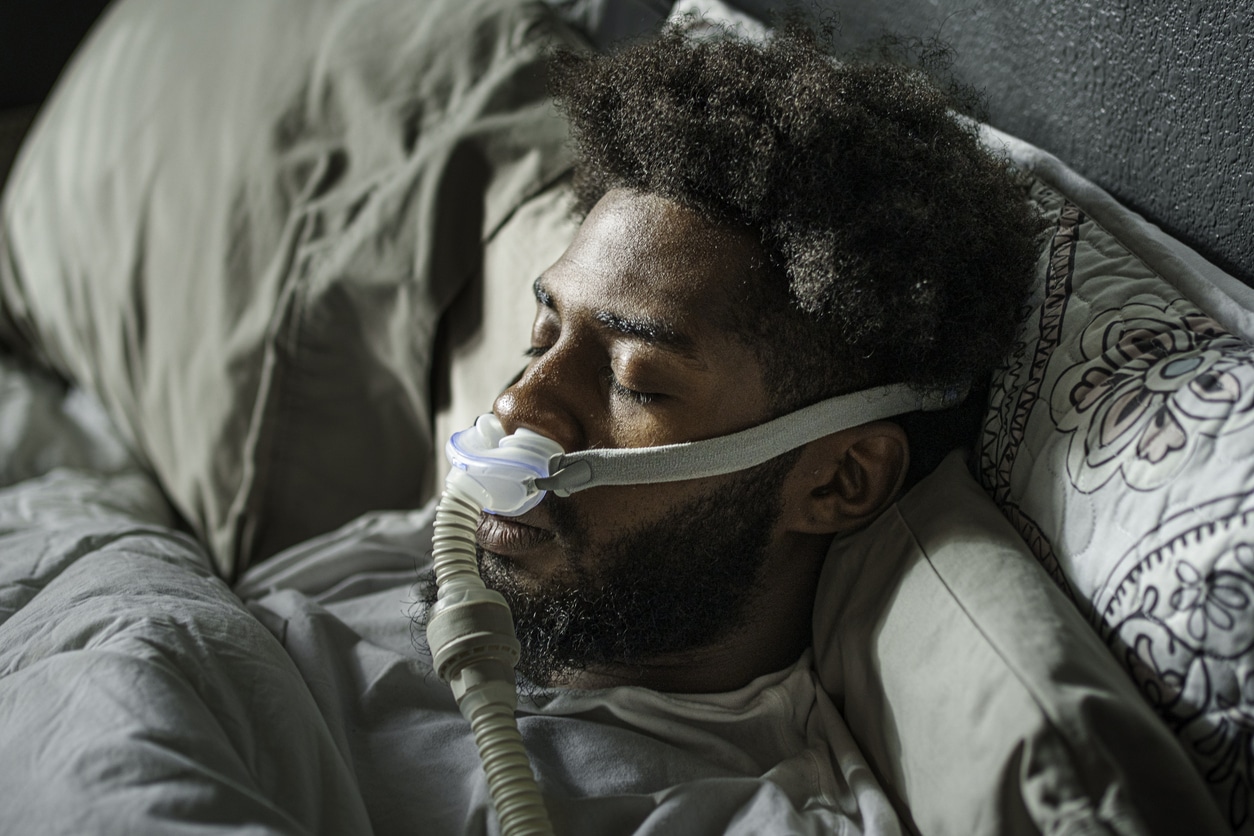A CPAP (continuous positive airway pressure) machine is a standard treatment for sleep apnea—a condition that causes you to stop breathing while you sleep.
In addition to breathing pauses, sleep apnea can lead to one or more of the following symptoms at night:
- Frequent waking
- Snoring
- Restlessness
- Night sweats
Daytime symptoms may include, but are not limited to:
- Headaches
- Mood changes
- Shortness of breath
- Fatigue
- Trouble concentrating
Let’s take a look at how CPAP machines work and how they improve your sleep apnea symptoms.
The Parts of a CPAP Machine

A typical machine includes:
- A mask that fits over your nose or both the nose and mouth
- A tube connecting the mask to the machine
- A motor that blows air
- An air filter that purifies the air
Some machines also come with humidifiers and adjustable pressure settings.
How Does a CPAP Machine Work?
A CPAP machine collects air from your room, filters and pressurizes it and pushes it through your nose and mouth via the face mask. The continuous pressure keeps your airways from collapsing and blocking your breathing.
Are CPAP Machines Uncomfortable?
Many people initially find the CPAP machine uncomfortable but get used to it over time. You can increase your comfort by wearing it for short periods while you’re awake and gradually working up to wearing it all night.
If you’re worried about finding the forced air uncomfortable, look for a machine with adjustable pressure settings and slowly work up to a higher setting.
Do I Have To Use It Every Time I Sleep?
Yes, you will need to wear your CPAP machine every time you sleep, including during short naps.
Is a CPAP Machine Loud?
Newer CPAP machines are almost silent, so you shouldn’t worry much about the noise disrupting you or your partner. If you find the low noise irritating at first, try running a fan to create a steady noise in the room.
How Do I Know if a CPAP Machine Is Right for Me?
Your sleep specialist will determine if a CPAP machine is right for you by discussing your symptoms and sleep history. They may also ask you to participate in a home or in-office sleep study where they measure your heart rate, blood oxygen level and breathing patterns.
Are There Alternatives to CPAP Machines?
If you have obstructive sleep apnea, an Inspire implant is another effective treatment option. The implant monitors your breathing patterns and stimulates the nerve controlling your tongue and airway muscles to keep the airway open.
Schedule Your Sleep Apnea Consultation
If constant exhaustion is making you need a few extra shots in your Loveland Coffee Company latte, schedule an appointment with our sleep specialists at Alpine Ear Nose & Throat PC. We’ll go over your symptoms and find the best treatment path forward.